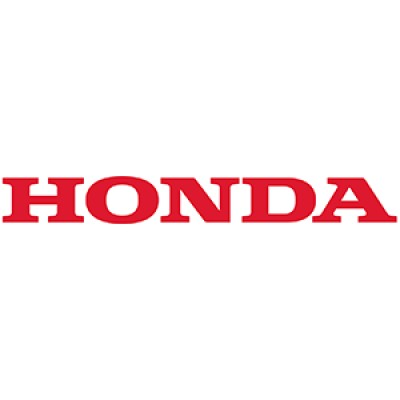Honda's Brake Recall: A Wake-Up Call for Safety
June 19, 2025, 4:38 pm

Location: United States, California, Torrance
Employees: 10001+
Founded date: 1959
Honda is hitting the brakes—literally. The company is recalling over 259,000 vehicles in the U.S. due to a serious brake pedal issue. This defect can cause the brake pedal to shift out of position, leading to a potential loss of braking power. The National Highway Traffic Safety Administration (NHTSA) has flagged this problem, raising alarms about the risk of crashes and injuries.
The affected models include the 2021-2025 Acura TLX, the 2023-2025 Acura MDX, and the 2023-2025 Honda Pilot. These vehicles represent a significant portion of Honda's lineup, and the implications of this recall are far-reaching. For many drivers, a car is more than just a mode of transport; it’s a lifeline. When that lifeline is compromised, it sends shockwaves through the automotive community.
The brake pedal issue is not just a minor inconvenience. It’s a potential disaster waiting to happen. Imagine driving down the highway, and suddenly, your brake pedal feels unresponsive. Panic sets in. The stakes are high. This recall serves as a stark reminder of the importance of vehicle safety.
Honda's decision to recall these vehicles is a responsible move. It shows that the company prioritizes safety over profits. In an industry where recalls can tarnish reputations, Honda is taking the necessary steps to protect its customers. The NHTSA's involvement underscores the seriousness of the situation. They are the watchdogs of the road, ensuring that manufacturers uphold safety standards.
This recall isn’t just about Honda. It’s a wake-up call for the entire automotive industry. As technology advances, vehicles become more complex. Manufacturers must remain vigilant. A single flaw can lead to catastrophic consequences. The pressure to innovate must not come at the expense of safety.
The automotive landscape is changing rapidly. Electric vehicles, autonomous driving, and advanced safety features are the future. However, with these advancements come new challenges. Manufacturers must navigate a maze of regulations and consumer expectations. The balance between innovation and safety is delicate. One misstep can lead to recalls that cost millions and damage trust.
For consumers, this recall is a reminder to stay informed. Regular maintenance and awareness of vehicle recalls are essential. Drivers should check for any safety notices related to their vehicles. The NHTSA provides a valuable resource for this information. Knowledge is power, especially when it comes to safety.
Honda's recall also highlights the importance of transparency. In an age where information travels at lightning speed, companies must communicate effectively with their customers. Honda’s proactive approach in addressing the issue is commendable. They are not hiding behind corporate jargon. Instead, they are stepping forward, acknowledging the problem, and taking action.
The automotive industry is under scrutiny. Consumers are more aware than ever of their rights and safety. A single misstep can lead to public outcry. Companies must be prepared to respond swiftly and effectively. Honda’s recall is a case study in crisis management. They are facing the issue head-on, which can help restore consumer confidence.
The impact of this recall extends beyond Honda. It serves as a cautionary tale for other manufacturers. Quality control must be a top priority. A culture of safety should permeate every level of production. From design to assembly, every detail matters. A small oversight can lead to significant consequences.
As we look to the future, the question remains: how can the automotive industry improve safety? Collaboration between manufacturers, regulators, and consumers is key. Open dialogue can lead to better standards and practices. The goal should be a safer driving experience for everyone.
In conclusion, Honda's recall of over 259,000 vehicles is a critical moment for the automotive industry. It’s a reminder that safety must always come first. As technology evolves, so too must our commitment to ensuring that every vehicle on the road is safe. The road ahead may be uncertain, but one thing is clear: vigilance is essential. We must all do our part to keep our roads safe. Whether you’re a manufacturer, a regulator, or a driver, safety is a shared responsibility. Let’s take this recall as a lesson learned and strive for a future where every journey is a safe one.
The affected models include the 2021-2025 Acura TLX, the 2023-2025 Acura MDX, and the 2023-2025 Honda Pilot. These vehicles represent a significant portion of Honda's lineup, and the implications of this recall are far-reaching. For many drivers, a car is more than just a mode of transport; it’s a lifeline. When that lifeline is compromised, it sends shockwaves through the automotive community.
The brake pedal issue is not just a minor inconvenience. It’s a potential disaster waiting to happen. Imagine driving down the highway, and suddenly, your brake pedal feels unresponsive. Panic sets in. The stakes are high. This recall serves as a stark reminder of the importance of vehicle safety.
Honda's decision to recall these vehicles is a responsible move. It shows that the company prioritizes safety over profits. In an industry where recalls can tarnish reputations, Honda is taking the necessary steps to protect its customers. The NHTSA's involvement underscores the seriousness of the situation. They are the watchdogs of the road, ensuring that manufacturers uphold safety standards.
This recall isn’t just about Honda. It’s a wake-up call for the entire automotive industry. As technology advances, vehicles become more complex. Manufacturers must remain vigilant. A single flaw can lead to catastrophic consequences. The pressure to innovate must not come at the expense of safety.
The automotive landscape is changing rapidly. Electric vehicles, autonomous driving, and advanced safety features are the future. However, with these advancements come new challenges. Manufacturers must navigate a maze of regulations and consumer expectations. The balance between innovation and safety is delicate. One misstep can lead to recalls that cost millions and damage trust.
For consumers, this recall is a reminder to stay informed. Regular maintenance and awareness of vehicle recalls are essential. Drivers should check for any safety notices related to their vehicles. The NHTSA provides a valuable resource for this information. Knowledge is power, especially when it comes to safety.
Honda's recall also highlights the importance of transparency. In an age where information travels at lightning speed, companies must communicate effectively with their customers. Honda’s proactive approach in addressing the issue is commendable. They are not hiding behind corporate jargon. Instead, they are stepping forward, acknowledging the problem, and taking action.
The automotive industry is under scrutiny. Consumers are more aware than ever of their rights and safety. A single misstep can lead to public outcry. Companies must be prepared to respond swiftly and effectively. Honda’s recall is a case study in crisis management. They are facing the issue head-on, which can help restore consumer confidence.
The impact of this recall extends beyond Honda. It serves as a cautionary tale for other manufacturers. Quality control must be a top priority. A culture of safety should permeate every level of production. From design to assembly, every detail matters. A small oversight can lead to significant consequences.
As we look to the future, the question remains: how can the automotive industry improve safety? Collaboration between manufacturers, regulators, and consumers is key. Open dialogue can lead to better standards and practices. The goal should be a safer driving experience for everyone.
In conclusion, Honda's recall of over 259,000 vehicles is a critical moment for the automotive industry. It’s a reminder that safety must always come first. As technology evolves, so too must our commitment to ensuring that every vehicle on the road is safe. The road ahead may be uncertain, but one thing is clear: vigilance is essential. We must all do our part to keep our roads safe. Whether you’re a manufacturer, a regulator, or a driver, safety is a shared responsibility. Let’s take this recall as a lesson learned and strive for a future where every journey is a safe one.
